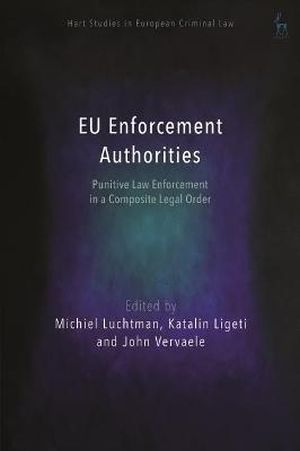
EU enforcement authorities are on the rise, entrusted with investigating breaches of EU law by individuals and economic actors. What are the implications for legal practice of their increasing prominence? This book explores this pertinent question from a constitutional and comparative perspective. It sets out the perimeters for composite enforcement and explores the relevant issues such as the interface between criminal and administrative law enforcement, the protection of fundamental rights and legal protection, as well as the admissibility of evidence, including unlawfully obtained evidence. Given the very real implications of the authorities' investigations, this book will appeal to practitioners and scholars, in fields from criminal law to competition and banking law.